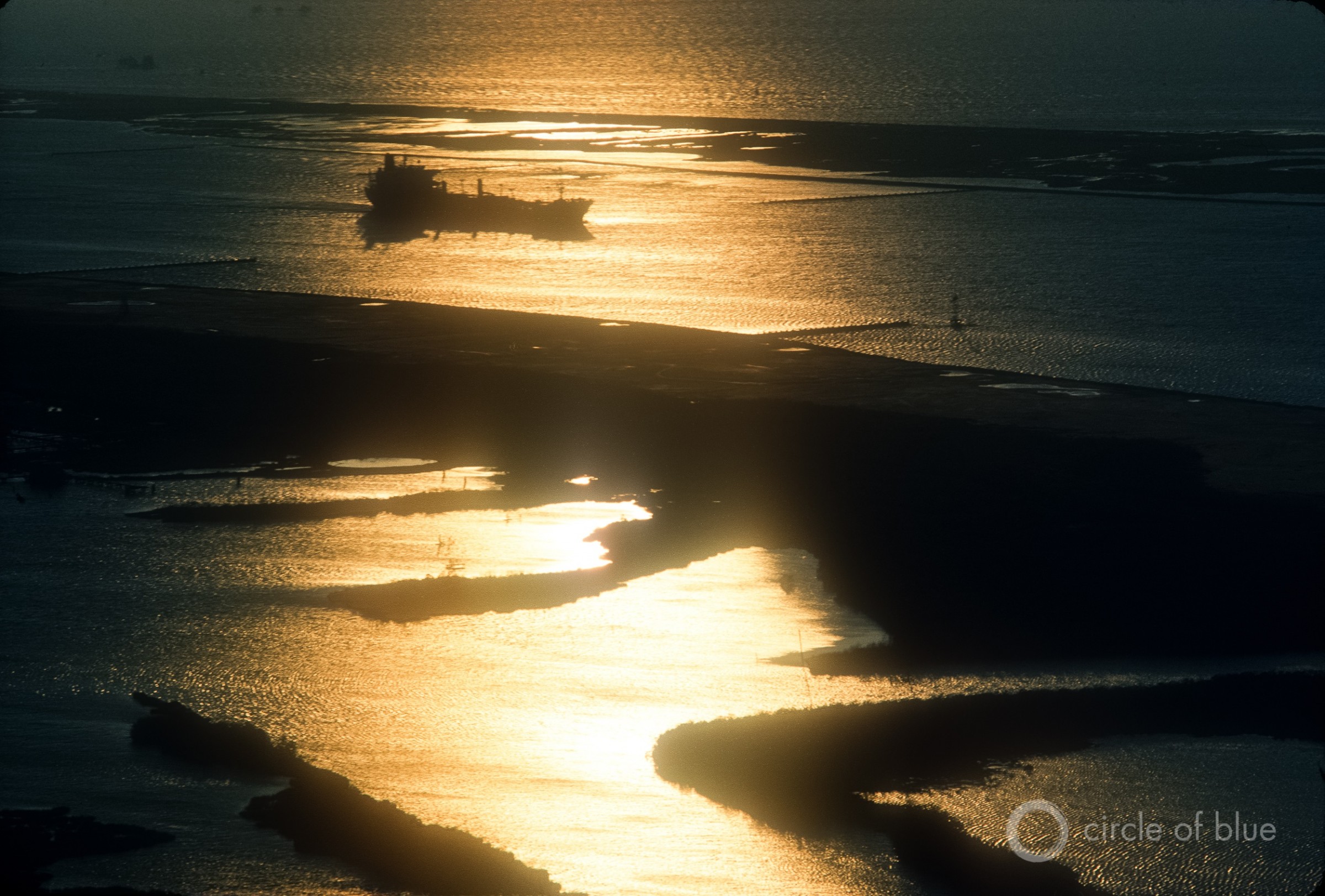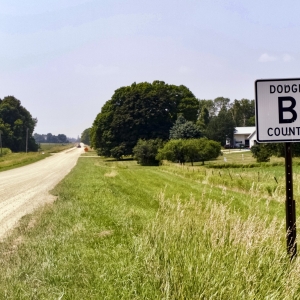The Stream, September 20, 2023: Widening Channels and Sea Level Rise Are Changing the Mississippi River Delta

The Mississippi River delta. Photo © J. Carl Ganter/Circle of Blue
YOUR GLOBAL RUNDOWN
- After receiving historic protections earlier this year, Albania’s Vjosa River is the centerpiece of a 31,000-acre national park that opens next year.
- Both climate change and the lack of a functioning weather service, world officials say, worsened Libya’s devastating and deadly floods.
- Scientists and federal agencies are balancing navigation with restoration as thousands of miles of the Mississippi River delta in Louisiana are at risk of being lost.
- Drought and high temperatures in southeastern China are shrinking tea leaf harvests and hurting the flavor of surviving crops.
The Mikisew Cree First Nation continues to seek international support in resisting oil sands and dams on their traditional land and waters in Alberta, Canada.
“Without the delta, there wouldn’t be Mikisew. So, us fighting to protect the delta is really us fighting to protect Mikisew and who we are, and why we exist in that part of the world.” — Melody Lepine, director of government and industry relations for the Mikisew Cree First Nation.
Wood Buffalo National Park’s boreal inland delta, river confluence, and wetlands coincide with the homelands of the Mikisew Cree First Nation, who call the place Ayapaskaw, meaning “all the creeks and waterways join and wind together with grasses and green things to form a living delta.”
But the First Nation is continuing to appeal to the World Heritage Committee, saying that their home “is gravely threatened by industrial activities outside its borders,” including the expansion of oil sands, tailing ponds, and hydropower dams. The Mikisew wrote a 102-page report, which the committee accepted, outlining recommendations for Canada and offering three years to take the required actions, The Narwhal reports.
If the national government does not, the First Nation and World Heritage Committee may have no choice but to list Wood Buffalo National Park as a “World Heritage in Danger” site — a designation that would encourage international intervention.
— Christian Thorsberg, Interim Stream Editor
Recent WaterNews from Circle of Blue
- Water Migrants: Reaching European Shores — A large group of Pakistani citizens were rescued from a migrant boat in the central Mediterranean Sea.
- Chicago Suburbs, Running Out of Water, Will Tap Lake Michigan — America’s groundwater is now running dry where water is abundant.
The Lead
The final few miles of the Mississippi River could be dramatically altered over the next half-century as sea level rise and a widening channel — called Neptune Pass — continues to grow. Today, Neptune Pass diverts 118,000 cubic feet of water per second from the river to Breton Sound, making it, technically, one of the country’s largest rivers by volume, Yale Environment 360 reports. It is so big that “ship captains have reported that Neptune Pass…was pulling their vessels into its vortex.”
The U.S. Army Corps of Engineers, officials, and coastal scientists are contemplating actions that balance the Mississippi’s utility as a vessel superhighway with the river delta’s environmental health. In recent years, “sediment-rich spillover from the Mississippi” has slowed, causing wetlands to “break down.”
If left alone, Neptune Pass could cause the loss of an additional 2,250 miles of delta land over the next half-century. This loss of land, coinciding with sea level rise, threatens to disappear coasts and communities altogether.
But the pass is also building land — diverting sediment through the channel, and stacking sandbanks in Quarantine and Denesse bays. “How do you balance the needs of folks who are making a living off the natural resources — like shrimpers and oystermen and fishermen — with vulnerable communities that desperately need storm protection?” Simone Maloz, a campaign director for Restore the Mississippi River Delta, told Yale Environment 360.
This Week’s Top Water Stories, Told In Numbers
3,958
The United Nations’ revised estimate of deaths in the Libya floods, following the World Health Organization’s count. That is a downward revision from the more than 11,300 deaths the UN had originally feared over the weekend, ABC News reports. In an interview last weekend, World Meteorological Organization (WMO) Secretary-General Petteri Taalas said that many of these casualties could have been avoided had the country had a functioning weather service. Security threats had previously prevented WMO officials from traveling to the country, and two rival governments complicated the institution of one cohesive meteorological department, Al Jazeera reports. In addition to poor planning and weak infrastructure, a new study from scientists at World Weather Attribution found that climate change “caused up to 50% more rain,” Reuters reports.
20
Percent by which spring tea leaf harvests fell in China compared to seasonal averages, France24 reports. Drought and record-high temperatures killed hundreds of thousands of plants last summer, the effects of which are still reverberating throughout the 2023 growing season. What’s more, the dry weather has damaged surviving leaves. They are thin with a less identifiable, more bitter taste.
On the Radar
One of Europe’s last undammed waterways, Albania’s 169-mile Vjosa River has been a source of controversy. Environmentalists want to prevent developers from building mines and dams in the watershed. But earlier this year, conservationists won out, and the Vjosa Wild River National Park was announced by the Albanian government. Now, the park — which boasts more than 250 miles of rivers and tributaries and 1,200 wildlife species — is on track to open to the public in 2024, the New York Times reports.
More Water News
Mayotte: In Mayotte, a French territory northwest of Madagascar, accessing drinking water has become increasingly difficult due to the worst drought in decades, France24 reports.
Panama Protests: Thousands of people in Panama are protesting against a new copper mine that environmentalists say will pollute fresh water lakes and other channels which provide more than half the country’s population with drinking water, Mongabay reports. The country’s National Assembly will soon vote on the deal.
Christian Thorsberg is an environmental writer from Chicago. He is passionate about climate and cultural phenomena that often appear slow or invisible, and he examines these themes in his journalism, poetry, and fiction.







Leave a Reply
Want to join the discussion?Feel free to contribute!